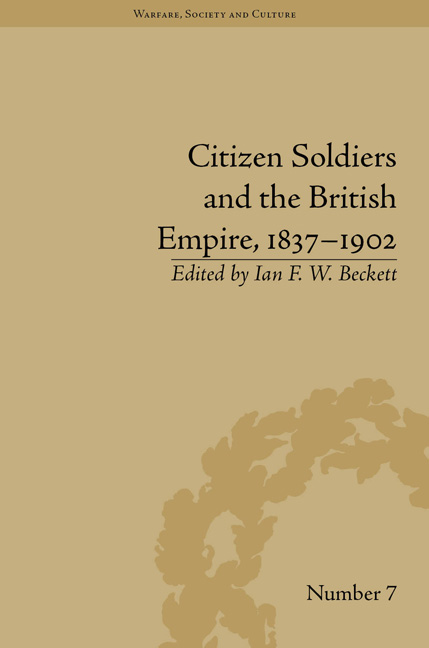6 - New Zealand
Summary
When the first European settlers arrived in New Zealand they encountered in the Maori a warlike, well-organized and increasingly well-armed people who were engaged in a series of bloody inter-tribal conflicts. The predominately British settlers brought with them a strong tradition of citizen soldiering that they drew upon in their new home. The inhabitants of Kororareka, the principal European settlement, were concerned during the 1830s both with the potential threat posed by Maori and by the lawless activities of other Europeans. In 1838 they established the Kororareka Association. Members of the association agreed to arm themselves and to act together under their elected president to maintain law and order and respond to threats to the community. When New Zealand became a British colony in February 1840, the new Governor, Captain William Hobson, immediately directed that the association cease its activities and also ordered the disbandment of the militia organized and armed by the New Zealand Company at its settlement of Wellington.
Unofficial volunteer units were established in the New Zealand Company settlements of Nelson and Wellington after twenty-two armed settlers and special constables were killed by Maori in what became known as the Wairou massacre in June 1843. There was, however, no further fighting and the governor, who was determined to pursue a conciliatory policy that would reduce the danger of racial conflict, ordered the disbandment of these units after a small detachment of British troops was sent to Wellington.
There was a widespread feeling among settlers after ‘the terrible affair at the Wairou’ that the colony's administration was failing in its duty to protect them. They pressed the governor and the Colonial Office for additional regular troops and for the establishment of a militia, which would be much more effective than hastily sworn in special constables. In response to a petition from settlers in Nelson, Lord Stanley reiterated the Colonial Office's view that the colony should take steps to ensure its own security by forming a militia. The Governor, Captain Robert FitzRoy was opposed to such an initiative, but nonetheless submitted a draft militia ordinance to the Legislative Council in September 1844.
- Type
- Chapter
- Information
- Citizen Soldiers and the British Empire, 1837–1902 , pp. 121 - 138Publisher: Pickering & ChattoFirst published in: 2014



